APS Spotlight
2024 APS Lifetime Achievement Awards Honor 15 Psychological Scientists
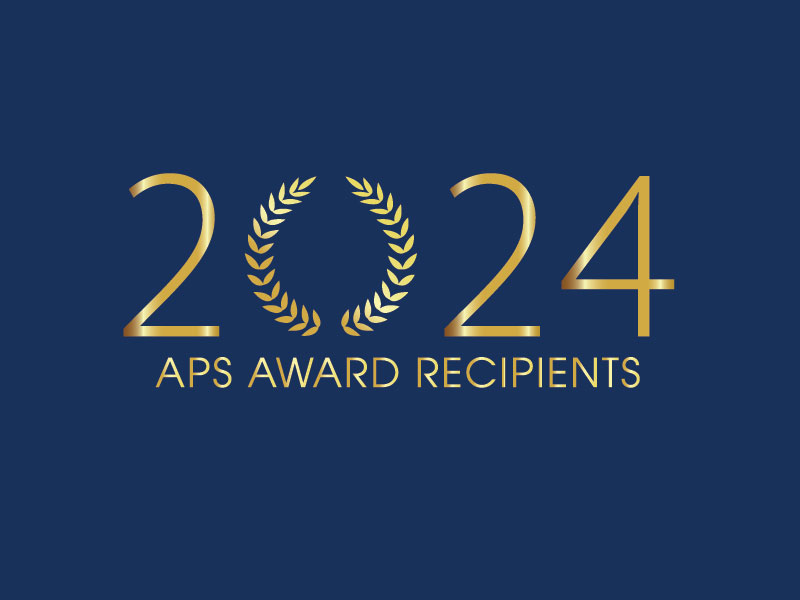
James McKeen Cattell Fellow Award • William James Fellow Award • James S. Jackson Lifetime Achievement Award for Transformative Scholarship • Mentor Award
Scientists who have pioneered our understanding of language, vision, theory of mind, racial/ethnic identity, and much more are among the 15 recipients of APS’s highest honors.
Fifteen scientists have been selected to receive the 2024 APS Lifetime Achievement Awards. Created in 1992, the Lifetime Achievement Awards recognize distinguished psychological scientists for their contributions to psychological research and the field. The awards were presented at the 2024 APS Annual Convention in San Francisco, California in May.
The 2024 APS Janet Taylor Spence Award for Transformative Early Career Contributions were also presented at that time.
APS James McKeen Cattell Fellow Award
Honoring APS members for their lifetime of significant intellectual achievements in applied psychological research and their impact on a critical problem in society at large.
Steven C. Hayes
University of Nevada, Reno
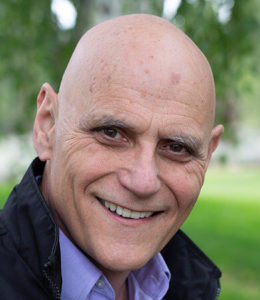
Steven C. Hayes is a Foundation Professor of Psychology Emeritus at the University of Nevada, Reno, and President of the Institute for Better Health. His pivotal focus lies in analyzing human language and cognition and applying this analysis to the alleviation of human suffering.
The architect of an empirical model of higher human cognition, Relational Frame Theory, Hayes used it to guide development of Acceptance and Commitment Therapy or Training (ACT in either case), a widely used and researched psychological intervention. This therapeutic approach, rooted in basic psychological science, has been adopted by the World Health Organization, the U.S. departments of Defense and Veterans Affairs, many state departments of mental health, and national health services across the world.
A Charter Member and APS Fellow, Hayes is the author of 47 books and over 700 scientific articles. He has been recognized with several awards, including the Impact of Science on Application award from the Society for the Advancement of Behavior Analysis and the Lifetime Achievement Award from the Association for Behavioral and Cognitive Therapies, among others. A leader in multiple organizations, Hayes was the first Secretary-Treasurer of APS and has served on the National Advisory Council for Drug Abuse in the National Institutes of Health (NIH). Hayes’s work has transcended academia and shaped mental and behavioral health globally.
Anthony (Tony) Jorm
University of Melbourne
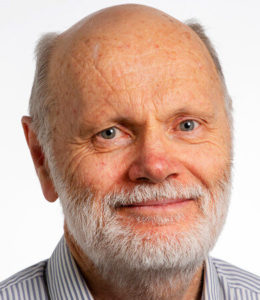
Anthony (Tony) Jorm is an Emeritus Professor at the University of Melbourne whose research focuses on building the community’s capacity for prevention and early intervention in mental disorders. Jorm and colleagues coined the term “mental health literacy” in 1997, and, since then, he has collaborated with a diverse group of colleagues to spearhead the creation of interventions aimed at enhancing various dimensions of mental health literacy.
He also co-developed the Mood Memos intervention, which uses the principles of persuasive communication to promote evidence-based self-help strategies for depression. Two randomized control trials have demonstrated the efficacy of this intervention.
Jorm has collaborated with colleagues on several whole-population interventions, which have been evaluated in quasi-experimental studies, including an evaluation of the impact of Australia’s national depression initiative Beyond Blue, the Compass Project aimed at youth mental health literacy, and the Victoria University project aimed at tertiary students.
Jorm has been a National Health and Medical Research Council (NHMRC) Australia Fellow and has received numerous awards for his scientific work, including the Life Healthy Communities Award from Suicide Prevention Australia for the Mental Health First Aid program, a course that teaches people how to identify, understand, and respond to signs of mental illnesses. The program has spread to 25 countries and trained more than 5 million people.
Read all of the articles from the November/December Observer.
Gordon Legge
University of Minnesota
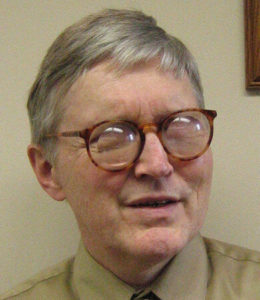
Gordon Legge is the Distinguished McKnight University Professor in the Department of Psychology at the University of Minnesota, the Director of the Minnesota Laboratory for Low-Vision Research, and Co-Director of the Center for Applied and Translational Sensory Science (CATSS).
Legge has made a lifetime of contributions that resonate on both personal and professional levels, driven by his unique perspective as an individual with low vision. Through both his research and the research community he has fostered, Legge has illuminated the intricacies of visual processing in individuals with both normal and impaired sight, shaping strategies that have unequivocally enhanced the quality of life for those with low vision, and solidifying low vision as a topic in vision science.
He is widely known for explaining the role of vision in reading in normally sighted people and those with low vision. He and his colleagues discovered how key variables (e.g., character size, contrast, spacing, font) affect reading, and how three critical properties of vision loss—low acuity, reduced contrast sensitivity, and field loss—affect reading. His research also clarified that critical print size (the minimum print size required for fluent reading), rather than acuity (the smallest print size that can be recognized), should guide the prescribing of reading aids.
An APS Charter Member and Fellow, Legge is a recipient of numerous prestigious awards, including an NIH MERIT award, the Lighthouse Pisart Vision Award, and the Charles F. Prentice Medal Award (the most prestigious award given by the American Academy of Optometry).
APS William James Fellow Award
Honoring APS Members for their lifetime of significant intellectual contributions to the basic science of psychology.
Jacquelynne Eccles • Henry Wellman • Shinobu Kitayama • Lynn Hasher and Rose Zacks
Jacquelynne Eccles
University of California, Irvine
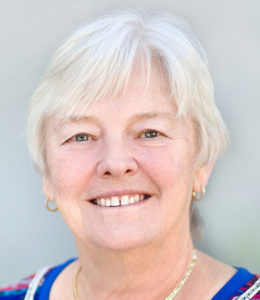
APS Fellow Jacquelynne Eccles is a Distinguished Professor of Education at the University of California, Irvine. Her research interests include academic motivation and achievement, school and family influences on adolescent development, and gender and ethnicity in STEM fields.
She has propelled our comprehension of how adolescents’ drive for achievement evolves within their sociocultural environments and has conducted several substantial longitudinal studies on children’s motivation from school years to adulthood.
Eccles’s Expectancy-Value Theory (EVT) of youth’s motivation, performance, and choice has become one of the most influential motivational theories in educational and developmental psychology. The theory and supporting work suggest that a students’ achievement is determined by two factors: their expectations for success and the value or importance that task holds for them. Eccles’ contributions have left an indelible imprint on global programs and policies aimed at enriching the lives of children and youth. Her work also has had a profound impact on our understanding of why women are less likely to go into STEM-related fields, and how those reasons have changed over time.
Eccles’s research on after-school activities led to a seminal National Research Council  outlining the most effective ways these activities can meet the developmental needs of adolescents.
A member of the U.S. National Academy of Education, Eccles is a recipient of a 1996 APS James McKeen Cattell Fellow Award and the Society for the Study of Human Development’s Distinguished Lifetime Contribution to Research award, among others.
Henry Wellman
University of Michigan
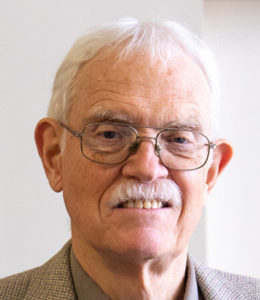
Henry Wellman is the Harold W. Stevenson Collegiate Professor Emeritus of Psychology at the University of Michigan. He is considered the world’s leading authority on theory of mind (ToM). Wellman’s research on children’s development of ToM has had a profound impact on developmental psychology, reshaping our understanding of cognitive growth. His exploration of cultural variations in cognition has highlighted the intricate interplay between individual and societal influences.
Wellman has examined the early precursors of ToM reasoning in preverbal infants, theory change and reorganization in the early preschool years, linguistic underpinnings in carefully selected populations (such as deaf children without access to fully fluent sign language), developmental disorders, neurophysiological correlates in studies of brain activity, universal cognitive development across both hearing and deaf children across the world, and parental and environmental input to these developments.
His extensive publication record includes over 200 journal articles and five books, including Making Minds: How Theory of Mind Develops (2014), which won two academic book awards, and Reading Minds: How Childhood Teaches Us to Understand People (2020). Wellman’s seminal work has garnered immense recognition, including being named a Fellow of the American Academy of Arts and Sciences. He is an APS Charter Member and Fellow, whose dedication to nurturing young talent was recognized with a 2022 APS Mentor Award.
Shinobu Kitayama
University of Michigan
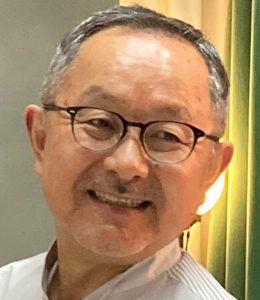
Shinobu Kitayama, the Robert B. Zajonc Collegiate Professor of Psychology and Research Professor of the Research Center for Group Dynamics at the University of Michigan, is a pioneering leader in socio-cultural psychology. He has used a variety of experimental methods to uncover a wide range of East-West differences in psychological processes. He also has explored regional, social-class, and age differences and similarities in psychological tendencies.
Kitayama was a leader in developing the field of cultural neuroscience. He pioneered the use of functional magnetic resonance imaging (fMRI) and electroencephalogram (EEG) to explore the interaction between culture and the brain.
More recently, he contributed one of psychology’s first papers during the COVID-19 pandemic, illustrating how cultural factors were affecting the spread of the novel coronavirus. He also documented how racial inequities exacerbated COVID-19 deaths in American cities.
His transformative contributions to psychology have been recognized with a Guggenheim Fellowship, the Alexander von Humboldt Foundation Research Award, and the Distinguished Scientific Contributions Award from the American Psychological Association. A Fellow and Charter Member of APS, he also assumed the role of APS President from 2020 to 2021.
See all Presidential Columns featured in the Observer by Shinobu Kitayama.
Lynn Hasher is Professor Emerita in the Department of Psychology at the University of Toronto and a senior scientist at the Rotman Research Institute at Baycrest Centre, and Rose Zacks is Professor Emerita of cognition and cognitive neuroscience in the Department of Psychology at Michigan State University.
APS Fellows and Charter Members, Hasher and Zacks are long-time collaborators. They have given invaluable insights into our comprehension of cognition, leading the way with both theoretical and empirical contributions in addressing individual and age-related differences in cognition. Their willingness to transcend conventional viewpoints yielded the formulation of inhibitory deficit theory, which suggests that inhibitory control is the key element for many cognitive abilities, including working memory and language tasks.
Their research has been recognized with numerous awards, including an NIH MERIT Award. Their labs have been dominant forces, and their collaborative efforts have shaped psychological science.
APS James S. Jackson Lifetime Achievement Award for Transformative Scholarship
Honoring APS members for their lifetime of outstanding psychological research that advances understanding of historically disadvantaged racial and ethnic groups and/or understanding of the psychological and societal benefits of racial/ethnic diversity, equity, and inclusion.
Launched in 2022, this award pays tribute to the late James S. Jackson, a pioneering social psychologist known for his research on race and ethnicity, racism, and health and aging among Black Americans.
Vickie M. Mays
University of California, Los Angeles
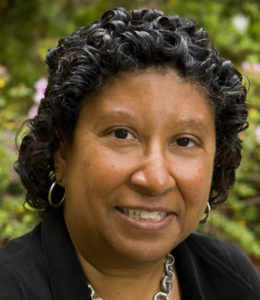
APS Fellow Vickie M. Mays is a University of California, Los Angeles, Distinguished Professor in the Departments of Psychology in the College of Letters and Sciences and the Department of Health Policy and Management in the Fielding School of Public Health and directs the BRITE Center for Science, Research, and Policy. She has also held multiple appointments in advisory positions to U.S. governmental bodies such as the National Academy of Sciences, Engineering and Medicine, National Committee on Vital and Health Statistics, and the Centers for Disease Control and Prevention.
A clinical psychological scientist, Mays’s pioneering research in HIV, race-based discrimination, and, in recent years, COVID-19 delves into mental and physical health disparities affecting racial and ethnic minority populations. Her research on the intersectionality of race, ethnicity, gender, sexual orientation, and class effects on mental and physical health has influenced not only the field of psychological science but also public policy. Throughout her career, Mays has identified important gaps in existing theories and bodies of knowledge and created critical conceptual models and findings to address those limitations.
Mays’s many awards include the American Public Health Association Mental Health Section’s Carl Taube Award for Lifetime Contributions to the Field of Mental Health, the American Psychological Association’s Distinguished Contributions to Public Policy, and myriad other honors from both major professional societies and community organizations.
Mays was a postdoctoral scholar at the Program for Research on Black Americans at the University of Michigan with Director James Jackson.
Robert Sellers
University of Michigan
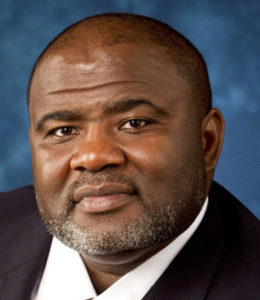
APS Fellow Robert Sellers is the Charles D. Moody Collegiate Professor of Psychology and a professor of education at the University of Michigan. His seminal work on Black American racial identity challenged prevailing assumptions and transformed the way scholars understand and study racial and ethnic identity, discrimination, and well-being.
Sellers and his colleagues not only conceptualized a theoretical framework for understanding the multiple dimensions of racial/ethnic identity, but they also developed an instrument for its assessment, the Multidimensional Inventory of Black Identity (MIBI). He and his students have examined how dimensions of racial identity influence African American students’ feelings about college, perceptions of Affirmative Action, and academic success in young adults. His work also helped identify the influence of family in shaping resilient and successful African American students, informing interventions designed to close the Black-White racial achievement gap.
The impact of this work reaches beyond personality and social psychology into developmental, educational, and clinical psychological science, and Sellers’s trainees and others have drawn upon it to examine identity processes in other groups, in numerous contexts, and throughout the lifespan.
Sellers’s work has been recognized with multiple awards, including a 2023 APS Mentor Award.
APS Mentor Award
Recognizing APS members who have significantly fostered the careers of others, honoring those who masterfully help students and others find their own voices and discover their own research and career goals.
James Gross • Claus Lamm • Brenda Major • Catherine (Cammie) McBride • Julio J. Ramirez
James Gross
Stanford University

James Gross is the Ernest R. Hilgard Professor of Psychology at Stanford University, where he directs the Stanford Psychophysiology Laboratory. His research focuses on emotion regulation. A Fellow and Charter Member of APS, he was the Founding President of the Society for Affective Science.
When asked how he decides which students to accept to his lab, Gross explained, “I choose people who I think I can help the most to advance their own goals.” He then works hard to foster “cohesiveness, camaraderie, and intellectual rigor” among his students, who report that years later they often find answers by asking, “What would James do?”
Along with his scientific acumen, Gross impresses on his students “the importance of always putting younger scholars first.” According to one former mentee, “He trained students to be excellent scientists, and then trained them to be excellent mentors.” Another said, “James is motivated by developing people and developing communities. For him, the ultimate reward is enabling another person to thrive.”
Claus Lamm
University of Vienna
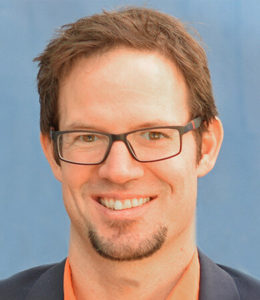
Claus Lamm is a Full Professor of Biological Psychology and Head of the Social, Cognitive and Affective Neuroscience Unit in the Department of Cognition, Emotion, and Methods in Psychology at the University of Vienna. An APS Fellow, Lamm’s research focuses on the neural underpinnings of social cognition and behavior in humans and animals.
“Claus cares deeply about his mentees,” one noted. He is described as being “reliable, flexible, fast-thinking, and incredibly precise” and doing so “with dedication and thoroughness, always communicating at the eye-level, making one feel like a worthy interlocutor with a contribution to make, rather than a ‘helper.’”
Past students are quick to point to Lamm’s humor, noting that “he would use humor to make me feel I was talking to a smart friend instead of a distant professor.” Early career researchers point to him as an advocate in the department who “is consistently working with us on ways to support ECRs’ academic careers…as well as their personal and mental well-being.” Another credited Lamm’s guidance as fostering “more humane scientists.”
Brenda Major
University of California, Santa Barbara
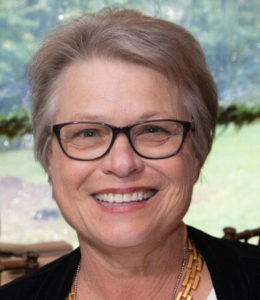
Brenda Major is a Distinguished Professor in the Department of Psychological and Brain Sciences at the University of California, Santa Barbara, a past Fellow of the Center for Advanced Study in the Behavioral Sciences at Stanford University, a Member of the American Academy of Arts and Sciences, and a Fellow and Charter Member of APS. Major’s research addresses how people cope with prejudice, discrimination, devalued social identities, and stressful life events.
As one former mentee notes, “Brenda fosters this inclusive atmosphere in her own lab. She has been a strong advocate for training young women and minorities in social psychology and her lab consistently has a diverse array of graduate students and undergraduate assistants working collaboratively on research.” She is known for asking her students “so what?” to encourage them to think about the implications of their work and “models how to choose research questions that matter in the world.”
Many of her mentees have gone on to assume important positions in academia, business, and public service. They have described her as “a tough and honest mentor, with high expectations, but also one who believed in them and is committed to supporting them in meeting those standards.” One described her as “the type of mentor we should all aspire to be—selfless, brilliant, and generous.”
Catherine (Cammie) McBride
Purdue University
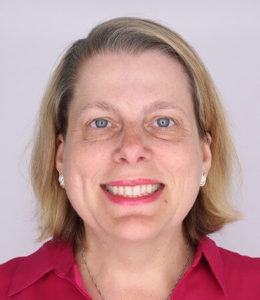
Catherine (Cammie) McBride is Professor of Human Development and Family Studies as well as Associate Dean for Research of the College of Health and Human Sciences at Purdue University. Previously, she was the Choh-Ming Li Professor of Psychology at The Chinese University of Hong Kong. An APS Fellow, McBride studies literacy development and impairment across cultures, scripts, and languages; mathematics development and impairment; and parenting.
McBride is described as a warm and consistent support to her students both academically and morally. Her mentees, who come from diverse backgrounds and study a wide range of topics, give her significant credit for improving their research, teaching, and communication skills and for supporting their appointments to prestigious positions around the world.
“She dedicated herself to interdisciplinary and cross-cultural reading development research,” said one former supervisee. “At the same time, she put equal emphasis on the supervision of her students, making sure they are getting enough support in the theoretical, statistical, social, financial, and even emotional aspect of doing good research.”
A former student wrote: “I am impressed by her diligence, intelligence, and creativity. Professor McBride’s mentoring not only cultivates first-class scientific talents, but also passes the mentoring style of all-round support and unconditional encouragement from generation to generation.”
Julio J. Ramirez
Davidson College
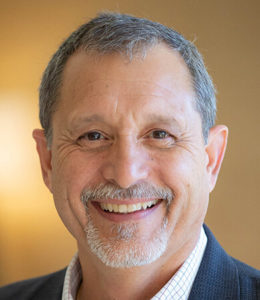
APS Fellow Julio J. Ramirez is the R. Stuart Dickson Professor of Psychology and Director of the Neuroscience Program at Davidson College. Ramirez’s research is focused on “the recovery of function after central nervous system injury, with an emphasis on determining the functional significance of lesion-induced hippocampal neuroplasticity.” He was presented with the 2009 Presidential Award for Excellence in Science, Mathematics, and Engineering Mentoring by U.S. President Barack Obama.
Throughout his career, Ramirez has mentored well over 150 undergraduates in his laboratory and has been a national leader in promoting innovative mentoring approaches in biological psychology and neuroscience, such as the creation and expansion of national mentoring programs and a journal on undergraduate neuroscience education. He was the founding president of the Faculty for Undergraduate Neuroscience (FUN), which provides a community for teaching and conducting research with primarily undergraduate populations. He also helped start the annual Symposium for Young Neuroscientists and Professors of the SouthEast (SYNAPSE) to enable faculty and students to present their research and network with peers.
Ramirez has demonstrated, time and again, with his enthusiasm in the classroom and in the lab, “that his greatest joy is to see his students succeed.” Numerous undergraduate students have coauthored research posters and scientific papers with him at national and international conferences and in journals. Former students noted that “Dr. Ramirez has a way of awakening his students to the opportunity and privilege of learning.”
Related coverage of the APS Awards Program
-
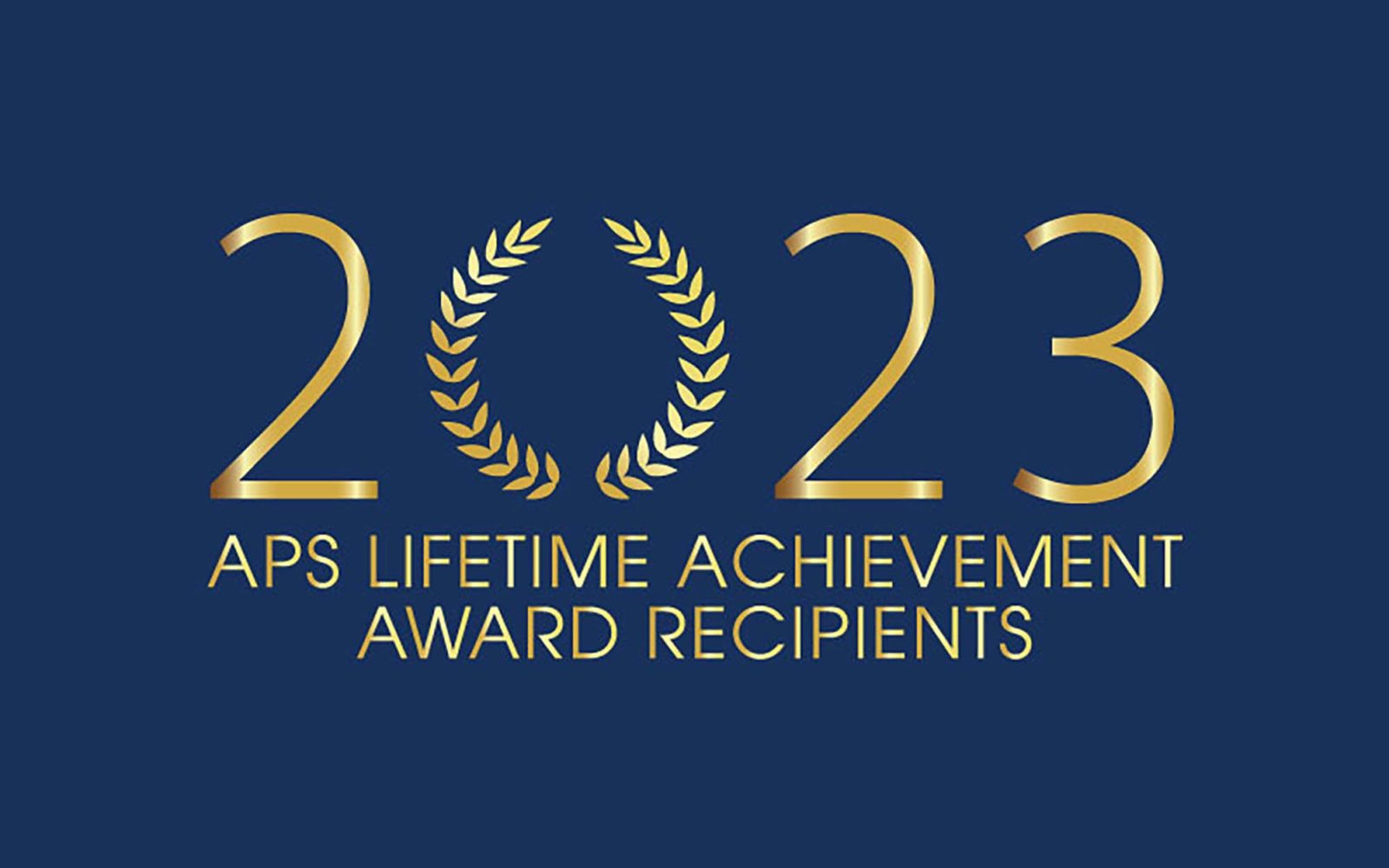
2023 APS Lifetime Achievement Awards Honor 13 Psychological Scientists
The association’s highest honors recognize psychological scientists for a broad range of contributions to psychological research and the field. Visit Page
-
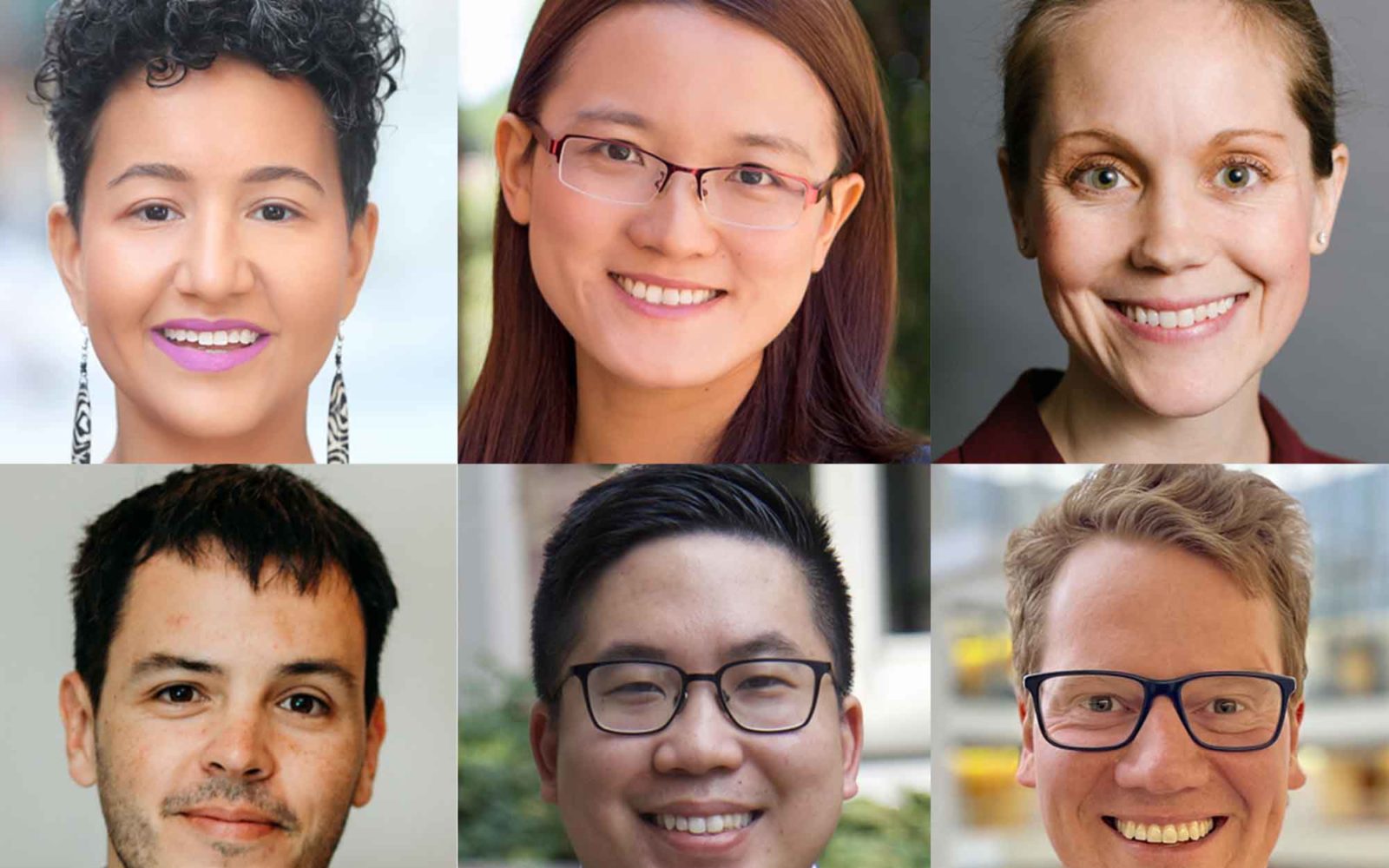
Six Early-Career Researchers Honored With 2023 APS Janet Taylor Spence Award
The six awardees are honored for groundbreaking research in areas including bias and discrimination, motivation, learning, and change. Visit Page
-
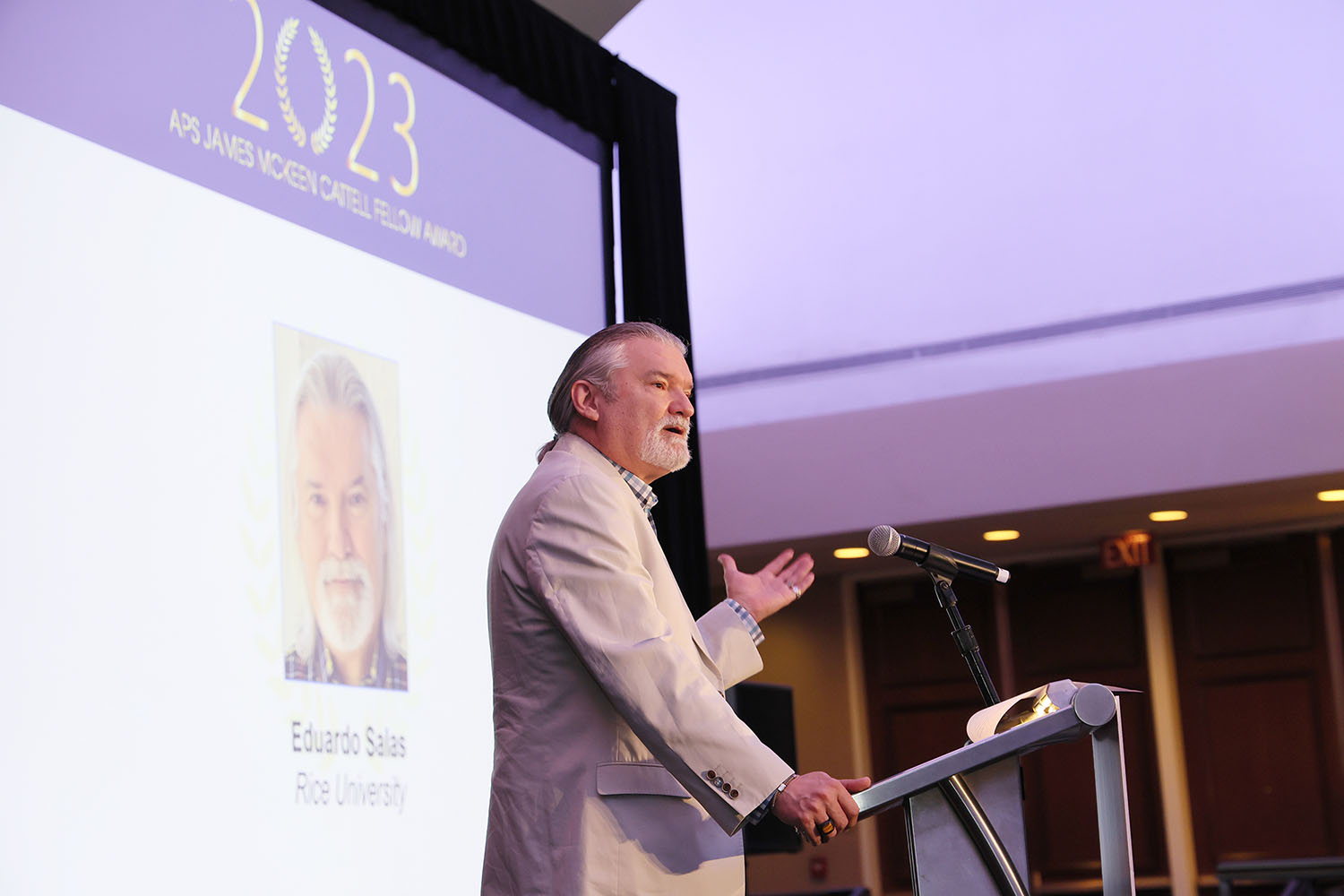
Gratitude, Reflection at the 2023 APS Awards Ceremony
“You don’t get to this stage without the help of a lot of people,” said Eduardo Salas, one of 19 honorees of the 2023 APS Awards Program. Visit Page
Feedback on this article? Email apsobserver@psychologicalscience.org or login to comment. Interested in writing for us? Read our contributor guidelines.

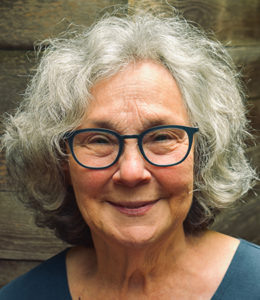
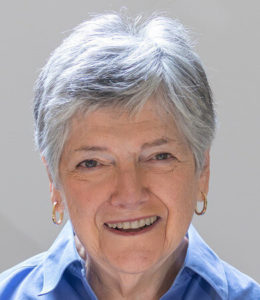




APS regularly opens certain online articles for discussion on our website. Effective February 2021, you must be a logged-in APS member to post comments. By posting a comment, you agree to our Community Guidelines and the display of your profile information, including your name and affiliation. Any opinions, findings, conclusions, or recommendations present in article comments are those of the writers and do not necessarily reflect the views of APS or the article’s author. For more information, please see our Community Guidelines.
Please login with your APS account to comment.